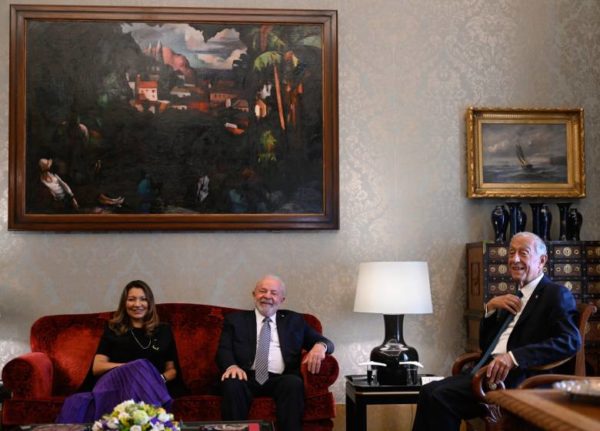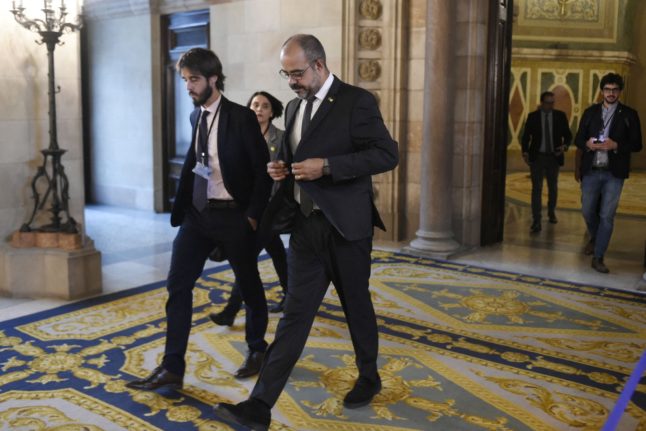The veteran leftist is starting a comeback tour that his office has called “the relaunch of Brazil’s diplomatic relations”, after four years of relative isolation under his far-right predecessor Jair Bolsonaro.
Lula returned to the presidency in January, vowing “Brazil is back” on the international stage, and has chosen the country’s former colonial ruler Portugal as his starting point in Europe.
He will also visit Spain on the tour, which comes on the heels of recent trips to China, the United States, Argentina and Uruguay.
After arriving in Lisbon on Friday, Lula’s official programme begins Saturday with meetings with Portuguese President Marcelo Rebelo and Prime Minister Antonio Costa.
The two countries will sign a series of deals on energy, science, education and other sectors.
Lula has also been pushing to set up a group of countries to mediate peace talks between Russia and Ukraine, and the topic will be on the agenda for the trip, his foreign ministry said.
Seeking to revive Brazil’s role as a deal-maker and go-between, he has vowed to cultivate friendly ties with all countries, and resisted taking sides with either the United States and Europe on one hand, or China and Russia on the other.
‘Encouraging’ the war
But the 77-year-old ex-metalworker — who previously led Brazil from 2003 to 2010 — faces some diplomatic awkwardness after recent comments chiding the European Union and United States over the Ukraine conflict.
On his visit to China last week, Lula said Washington should stop “encouraging” the war, and that the United States and the European Union “need to start talking about peace”.
He has also angered Ukraine by saying it shares the blame for the conflict and suggesting it should agree to give up the Crimean peninsula, which Russia forcefully annexed in 2014 in a prelude to its invasion of Ukraine last year.
After a flurry of criticism from Europe, Kyiv and the United States — including the White House, which accused him of “parroting Russian and Chinese propaganda” — Lula dialled back what some saw as his anti-Western tone, saying that Brazil “condemned” Russia’s invasion.
Portugal, a founding member of NATO and one of the first European countries to supply tanks to Ukraine, also voiced disapproval.
Lula, named on Time magazine’s list of the world’s most influential people last week, will navigate that thorny issue in Lisbon meetings, before meeting business leaders Monday in the northern city of Porto.
Back in the capital, he will then preside together with Costa at a gala to present the Camoes prize, the highest honour in Portuguese language and literature, to beloved Brazilian singer-songwriter Chico Buarque.
His schedule in Portugal will wrap up Tuesday with an address to parliament as it marks the anniversary of the Carnation Revolution in 1974, which ended Portugal’s last military dictatorship.
Lula then heads to Spain on Tuesday and Wednesday, where he will meet King Felipe VI and Prime Minister Pedro Sanchez.



 Please whitelist us to continue reading.
Please whitelist us to continue reading.
Member comments